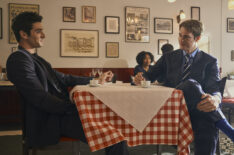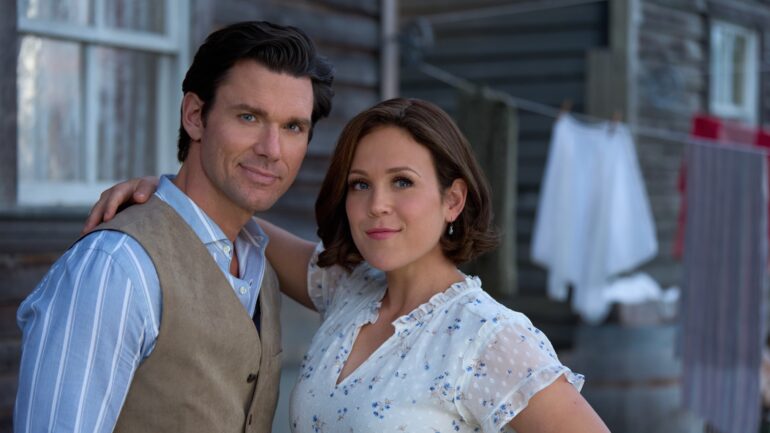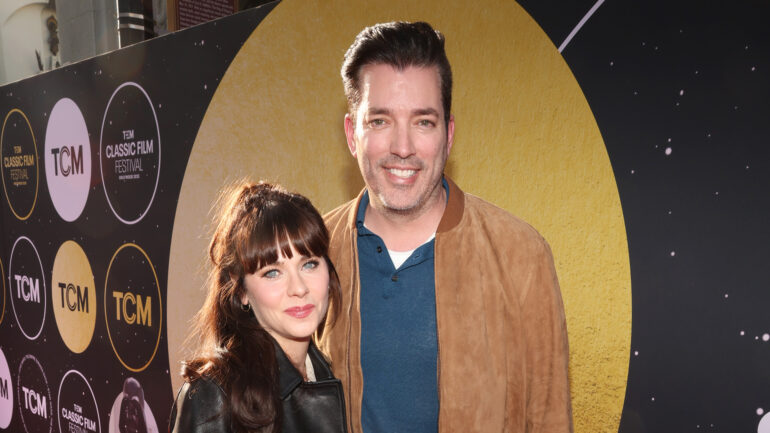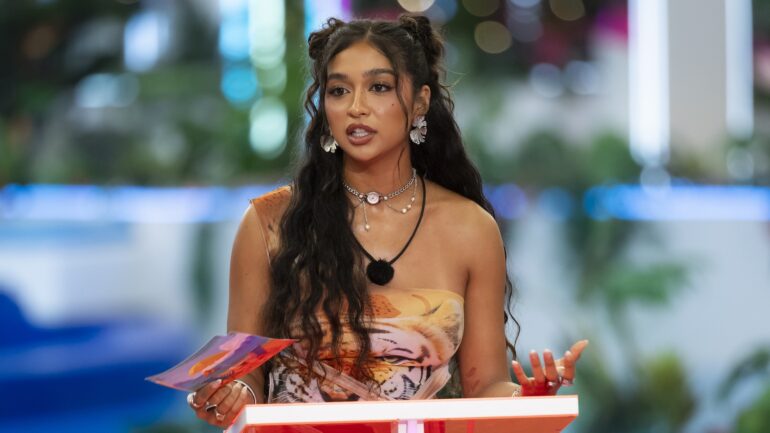‘Red, White & Royal Blue’ Director on Tackling ‘Huge’ Book Changes & Embracing the ‘Uniqueness’ of its Queer Love Story
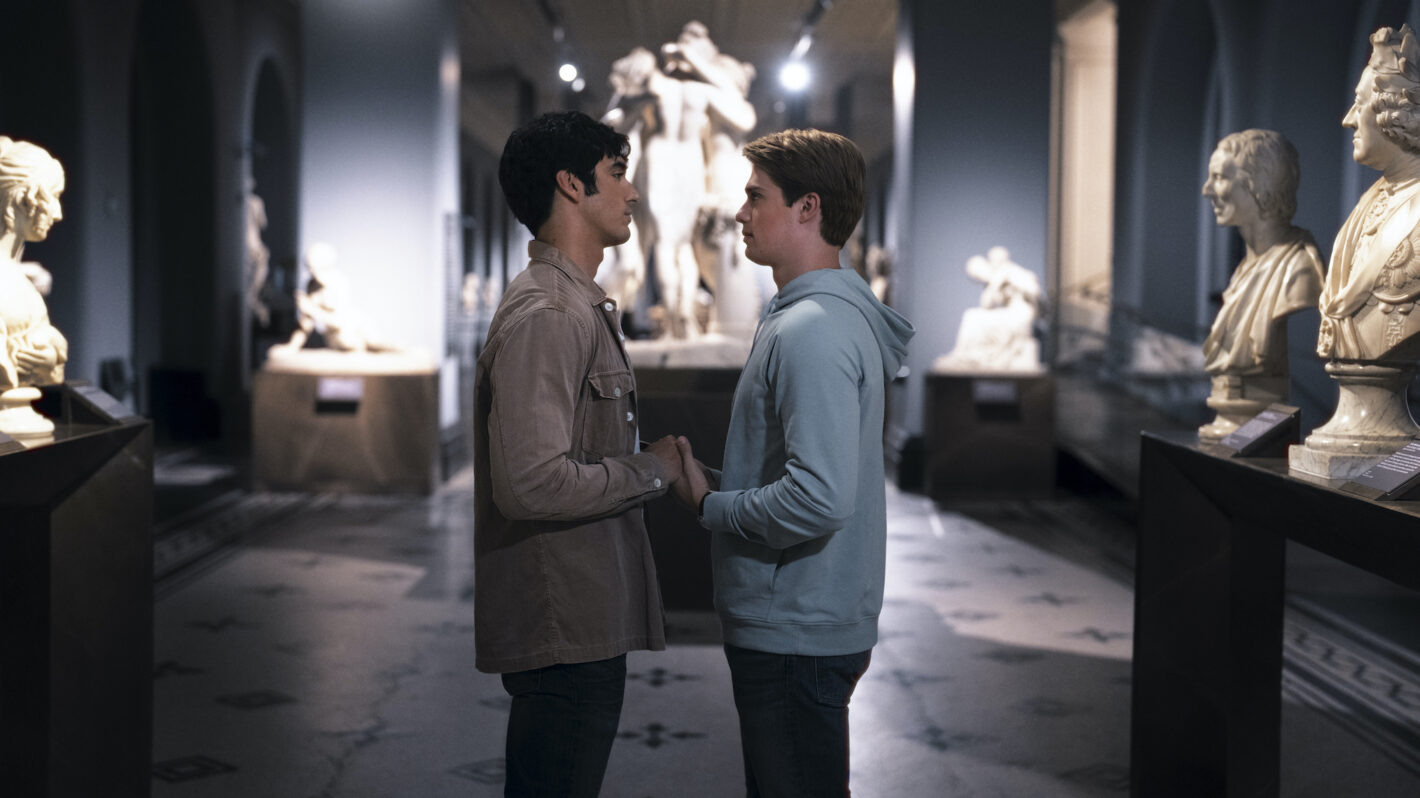
Tony Award-winning playwright Matthew López made his feature directorial debut with Prime Video‘s 2023 film Red, White & Royal Blue, the film adaptation of Casey McQuiston’s bestselling novel. The romantic comedy (which is getting a sequel!) follows the love story between Alex Claremont-Diaz (Taylor Zakhar Perez), the First Son of the United States, and Prince Henry (Nicholas Galitzine) of Britain.
López spoke with TV Insider about bringing the beloved novel to life, finding the perfect Alex and Henry, navigating the movie’s most intimate moments, and why he sought to make a “classic rom-com” that’s “both very queer and very, very traditional.” Scroll down for our full Q&A.
What were your conversations like with Casey as you discussed adapting the novel and what you were going to include and not include in the film?
Matthew López: What I have to say is that Casey paid me the ultimate compliment of leaving me alone, and then also simultaneously being entirely available to me whenever I needed to go to them for questions or advice. Casey was extraordinarily hands-off in the most healthy way possible and then was also sort of very much the oracle at Delphi whenever I needed them to be. I think when it came to major decisions about huge changes, I definitely made sure that I ran them by Casey. I suppose the biggest one would be taking June out of the story. Alex has a sister in the novel. I spoke about this recently, and the truth is, I started working on the script and realized that I could either have two small roles for two young women to play, or I could have one pretty good-sized role for a young woman to play. And I opted for that. I took the scenes that I needed from the book that belonged to June, and I gave them to Nora. As a result, Rachel Hilson is pretty great in the film. Casey was asked all the right questions. I don’t even think Casey was skeptical. They were probably surprised by the idea, but then again, Casey paid me the ultimate compliment of listening to me and hearing me out and saying, “Yeah, okay, go for it.”
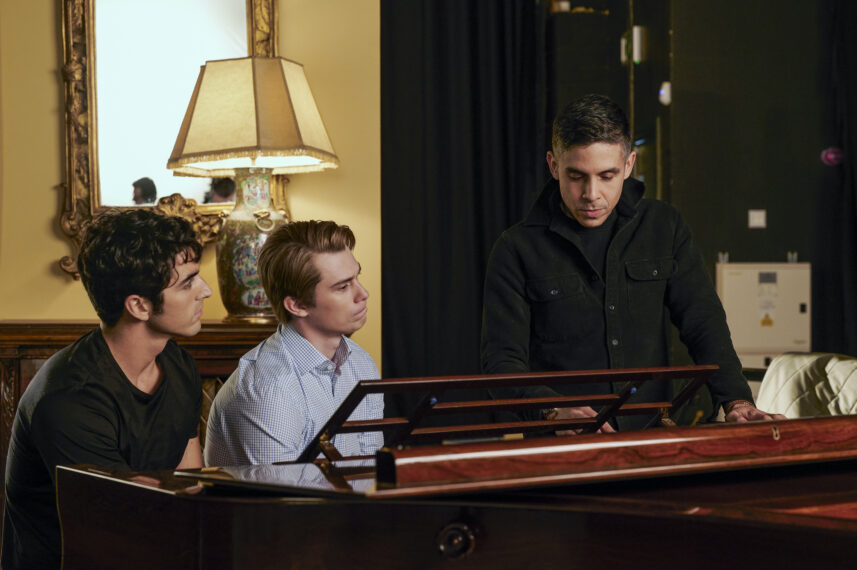
Prime Video
Going into the casting process, did you have a feeling you would cast a certain character first?
No, the emphasis was always on Henry and/or Alex. We didn’t really engage in any other casting conversations until we had our Henry and our Alex because it was pointless to do so. We knew we didn’t have a movie until we had Henry and Alex. It was a simultaneous process and started in 2021. We were looking at hundreds and hundreds of self-tapes, and in and among them were Taylor and Nick. Over the course of the following winter and spring, we started to narrow it down until it was just those two. My memory is that Nick came on board in March 2022, and then Taylor was on board April/May of 2022. Only then did we really start to seriously talk about other characters.
Between Alex and Henry, who was the more difficult character to cast?
I guess I would say Alex. There were hundreds and hundreds and hundreds of young Latin actors auditioning for this role, which was very heartening for me. But of course, the trade-off of that is that there were hundreds and hundreds of actors submitting for the role. So it was a real needle in a haystack kind of thing, and it took a long time to figure out who were the the top contenders. It was also just by virtue of the fact that we had Nick first. If it had been the other way, I think finding Henry would have been difficult because then we would have been casting the perfect partner for Taylor.
What do you think Nicholas and Taylor bring out of each other as performers in these roles?
They’re incredibly different people from each other and from the characters that they play. They quickly decided to trust one another, and I think that the decision to trust each other happened before the actual trust occurred. They knew that they needed each other, and they knew that they needed not just to get along. They knew they needed to be able to lean into one another for dear life as they were doing this challenging thing. I think at the end of the day, the most important thing that they provided for each other was a sense of safety and a sense of outer calm to create. They seemed to be having fun while making the film, and we all had fun making the film. There was also a real seriousness to their approach on certain days. There were days when they were both silly, and there were days when they were both sort of focused. Seriously, one of the things that I did notice about them is if one of them came to set silly and the other one came to set focused and serious, whoever was silly became focused and serious. They support each other. And then, in terms of what you see onscreen, I just think that there’s this impossible-to-define quality that is the chemistry that they possess with each other. You know, if asked to explain any two actors’ chemistry, it’s like describing the molecular charge between people. I just know that they had it, and I was incredibly lucky that they did.
The entire movie hinges on their relationship. If the chemistry wasn’t there, it wouldn’t have worked.
I think they genuinely saw in the other a person what they themselves were not. Their differences, as actors, their approach to their work, they couldn’t be any more different from one another. They really grew to respect and appreciate those differences. And there was a promise that came between them. Someone told me there was this blind item somewhere about two certain leads of a certain romantic comedy have imperiled the future of the sequel because they’re not getting along. And I was like, well, that ain’t us. It may be some other two, but it’s not us.
Alex and Henry’s sex scene isn’t just a sex scene. It’s more about the emotional impact of that intimate moment for both of them, and the scene is mostly close-ups of their faces. How did you decide to film that scene the way you did? Were there other ideas you considered?
I knew that the scene would ultimately be narratively worthless if we didn’t understand where the characters were emotionally, both of them, every step of the way. The only way to do that is to see their faces and, more specifically, to see their eyes. There are a number of different ways one could have filmed that scene. But for me, it was just another way to get at their inner state and to really bring them ahead emotionally ten steps. Whereas before that scene, we were taking them one step at a time, and then we make a big leap forward emotionally for the two of them. But we wouldn’t understand that unless we saw their faces. When I was planning that scene, I wanted it to be sexy, and I also wanted to be very honest in terms of how two men have sex with each other. But all of those are secondary to the emotional connection between the two of them in that scene. We had to understand that on the other side of that scene, they have truly, truly made themselves vulnerable to each other. Their eyeballs were always the most important body part in that sex scene.

Prime Video
The scene when Alex tells his mother about his feelings for Henry is one of the most touching in the film. How important was it to not minimize this scene within this romantic comedy?
Casey and I were actually just discussing that very recently because they reminded me that, in the novel, it is largely played for laughs. In the novel, I think it’s Alex coming to his mom and his mom saying, “Alright, well, give me an hour or two, and then come back.” Alex comes back, and Ellen has made a PowerPoint presentation. I knew when I was adapting that that wasn’t going to work because we just needed to keep moving. I also recognized that there was a really great opportunity to have fun and to get laughs, which I like to think we do, but it is an opportunity to really deepen the relationship between Alex and his mom onscreen. Whereas in the novel, we’ve already had many other scenes that aren’t included in the film that helped do that. I knew that, ultimately, it would be a very different scene in the movie than it was in the book. And then when I started to write it, I kind of wanted to create a version of the ideal way that this thing could possibly go for any queer kid. I always said that it isn’t just Uma [Thurman] being the world’s greatest mom. It’s also Uma being the world’s greatest president. She is definitely more mom than president in that scene. There was a lot of wish fulfillment in the writing of that scene, and it was a dream come true the way Uma and Taylor played it.
Do you think Red, White & Royal Blue has changed the way Hollywood views queer love stories in the rom-com space?
I think if there’s anything that queer storytellers want, or maybe I should say what this queer storyteller wants, it is to find that golden, beautiful zone in which we find the balance of original, new, uniqueness of queer storytelling while also creating a sense of ordinariness. At the end of the day, I don’t think that this movie, this story, works as well, if at all if they were a straight couple. It could have worked, but I don’t think the story itself would have worked as well. I do believe what makes this story special, as a book and as a film, is the uniqueness of its queerness. That said, I also hope that the thing that makes the film special is that it feels, in some ways, like a classic rom-com. I think we’ve been longing for queer rom-coms that are both very queer and very, very traditional. There’s nothing bad about adding your voice to traditional narratives. When it does, it changes people’s definitions of traditions.
Red, White & Royal Blue, Streaming Now, Prime Video

